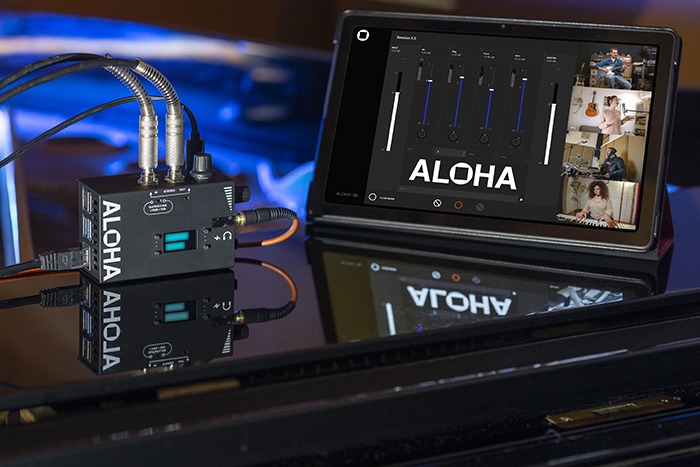San Francisco Opera has turned to Aloha by Elk, a new real-time remote music collaboration service, to prepare its acclaimed resident artists, the Adler Fellows, for a highly anticipated live drive-in series beginning on 29 April 2021.
Aloha’s latency service connects artists remotely, eliminating the lag time that interrupts the creative flow. This allows artists to collaborate and play together live, as if they’re in the same room. For the San Francisco Opera’s classically trained artists whose in-person music collaboration has been put on pause during the pandemic, this means that important musical cues such as hearing breaths, shifts in tempo, and expressive variation are now in sync during remote rehearsals.
“Aloha is reenergising our resident artist training program, allowing collaborative coaching to happen in remote locations, but with a degree of immediacy not previously possible,” stated Matthew Shilvock, General Director of San Francisco Opera. “One of our pianists commented recently that he was so moved to hear a singer breathe – it was the first time in a year. It was a poignant reminder of how impactful music making will be as we return. Aloha is allowing us to prepare and rehearse singers remotely for our upcoming performance activity and has let us reconnect to singing. We’re honoured to be working with Elk in using Aloha and to be charting a new way of making music together.”
Currently in beta, Aloha’s pocket-size device and app brings the performance of Elk Audio OS to keep remote users in sync with a quality audio experience. Easy-to-use features, which are set within a familiar video chat dashboard, include individual monitoring controls, effects and recording capabilities with options for streaming performances and collaborations over popular social channels. The service runs on smartphones, tablets and computers, over high-speed internet and 5G networks and delivers a real-time experience artists need to collaborate remotely.
Carrie-Ann Matheson, Artistic Director, San Francisco Opera Center, elaborates on the deeper connect point Aloha brings: “After almost one year of musical isolation, the Aloha system has given our Adler Fellows the beautiful reminder of what it feels like to breathe with another artist. Connection is an integral part of being a musician, and the Aloha by Elk system has allowed us to connect, collaborate, create and react in real time. As we prepare to make the long-awaited transition back into live performances, this exciting technology has helped us immensely in our training for upcoming concerts and operas.”
For live music, the typical lag time with traditional video conferencing applications can be 15 times more than the minimum needed for artists to make music collaboratively.
“Digital transformations in this IoT world have connected almost every market imaginable, yet music has remained siloed. This pain point was magnified when the pandemic put an end to live music as we know it,” commented Michele Benincaso, Founder and Director of Elk Audio. “With 5G on the horizon and current networks becoming stronger and faster, we are at a tipping point that has set the stage for Aloha’s real-time service connecting artists and instruments in a way never before possible. More than catching up, Aloha is enabling musicians and artists to leapfrog into the connected world and collaborate with anyone, anywhere.”
San Francisco Opera was one of the first arts organisations to use Aloha to move its music program safely forward during the pandemic, paving the way by pioneering groundbreaking technology for life after COVID-19.
Shilvock concluded: “While we crave getting back to the Opera House, I do believe in a post-pandemic world there will be many opportunities for music making on a remote basis in a way that Aloha would support. Coaching with teachers who might be in another part of the state, or the world, workshopping a new piece with singers in different cities, and just making music together for the sake of making music. Aloha opens up incredible flexibility and freedom for music making, and that flexibility is here to stay.”


